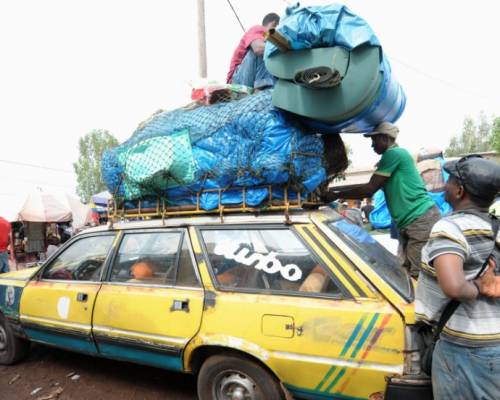The future of terrorism in Senegal - keep your eyes on Dakar
24 April 2017 - RPS Partnership
RPS Partnership has been working in Senegal since 2016 and brings you this interesting look at the future of terrorism in this country; one which does not appear much in international headlines. Contact us for more advice and training if you are planning to travel there or work there [email protected]
The full analysis is here with thanks to Signal Risk.
In recent weeks, Senegalese authorities arrested three individuals suspected of having ties to the Islamic State transnational terrorism network. Among those detained were two Moroccans who were remanded into custody in Dakar on 29 March. A Nigerian national was similarly arrested in the capital on 1 April. While details were not readily provided on the detention of the former, the Nigerian national was described as being a member of the Islamic State West Africa Province (ISWAP) – formerly known as Boko Haram – which was purportedly recruiting for the Islamist sect among Senegalese youth.
Despite the primacy of its insurgency in Nigeria and the wider Lake Chad basin, Boko Haram has long been accused of having ties to Senegal. The first of these connections was publicised in 2012 when the Grand Imam of Bignona claimed that Boko Haram had actively been recruiting in the town. Claims of the sect’s Senegalese connections were further bolstered in February 2016, when four imams were arrested in Kaolack on suspicion of proselytisation and recruiting on behalf of the group. Their arrests were allegedly initiated by the November 2015 detention of Senegalese national, Makhtar Diokhané, who was detained in Niger along with a number of Boko Haram operatives and subsequently transferred to Senegalese authority for prosecution. Most recently, a suspect with the alias of Lamine C was among three suspected Islamist extremists arrested in the Yoff-Tonghor area of Dakar on 24 June. Following his interrogation, Lamine C allegedly confessed to Senegal’s Criminal Investigation Department (DIC) that he was one of 23 Senegalese nationals among the ranks of Boko Haram.
In addition to Boko Haram, Senegalese ties also extend to the sect’s Levant-based patron, namely the Islamic State. In addition to the 29 March arrests of two Moroccan nationals at Dakar’s Léopold Sédar Senghor International Airport, it is estimated that between 10 and 30 Senegalese nationals may have travelled to the battlefields of Syria, Libya and Iraq to both defend and expand the Islamic State’s caliphate.
While Senegal’s ties to groups such as Boko Haram and the Islamic State will undoubtedly be cause for concern, it is the country’s relation to al-Qaeda which could most influence the its short-to-medium term terrorism outlook. In February 2017, two Malian nationals were detained in Dakar by the Brigade d’intervention polyvalente (BIP) on suspicion of being tied to the al-Qaeda-affiliated al-Mourabitoun commander, Mohamed Ould Nouini.
The Malian-borne Ould Nouini is believed to have masterminded the March 2016 attack on the Grand Bassam beachfront in Cote d’Ivoire which killed 19 people and wounded 36 others. The arrest was the most concrete evidence of al-Qaeda’s encroachment into Senegalese territory from its regional operational stronghold in neighbouring Mali since the 2013 apprehension of Senegalese preacher, Imam Babacar Dianko in Kédougou – an alleged associated of the al-Qaeda-aligned Movement for Oneness and Jihad in West Africa (MOJWA) leader, Hamada Ould Mohamed Kheirou.
Factors such as Senegal’s strong relations with the United States and France; its geographical proximity to Mali; its direct and tacit involvement in regional counterterrorism operations; and a reported growing influence of Wahhabism among the country’s burgeoning youth population, raise serious concerns that an act of terrorism in the West African country may be more a question of when, not if.
The greater uncertainty, however, is which Islamist extremist group will ultimately claim responsibility when such an attack, either attempted or successful, eventually occurs.
Contact [email protected] if you are planning to work in Senegal so we can advise you, plan with you and train your staff to be adequately prepared.
Photo: Dakar


